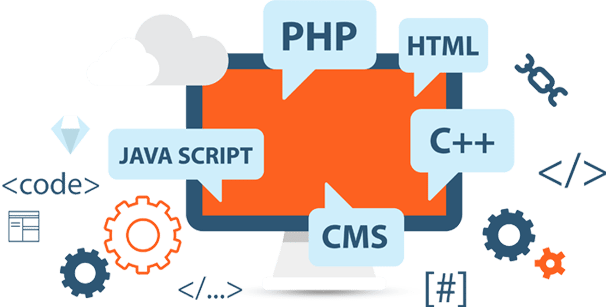The mobile industry is flourishing at a faster pace. People and businesses across the globe are embracing the mobile technology to reach a wider audience, offer unparalleled services, and gain higher ROI. But, at the same time, they are facing a tough competition in the market. This is where the need to entertain multiple platforms comes into existence.
While some brands opt to develop a mobile application for native Android and iOS platforms individually, others take a smart approach. They invest in cross-platform app development and build a mobile application that runs on multiple platforms. Though the second option is cheaper and effective, it is not easier to decide which technology to pick for looking forward to investing in cross-platform app development.
Taking the same thought forward, we will discuss the Ionic and React Native platform in this article. But before that, let’s have a quick recap of what Ionic and React Native is.
Ionic
Ionic is an open-source cross-platform app development framework that uses HTML5, CSS, and JavaScript for developing a mobile app with an impressive feel and User Interface. It uses Apache Cordova, Angular and various other tools like Sass to create apps that run on Android, iOS, Windows, Web, Desktop, and Progressive Web Apps (PWAs) platforms.
React Native
React Native is a UI framework introduced by Facebook that enables the mobile app developers to write a code that can be reused to develop a mobile app for other platforms. In other words, it prevents you from building the same app from scratch for a different platform with the feature of code reusability.
Ionic vs React Native: A Comparative Table
| Feature | Ionic | React Native |
| Prime Goal | Using Web technologies for mobile app development | Making the use of a Functional interface |
| Development Style | Write Once, Use Anywhere | Learn Once, Write Anywhere |
| Community Support | Strong | Strong |
| Code Reusability | Code can be reused to create Android, iOS, Web, and Progressive Web Apps | Code can be reused to build native apps (Android, iOS, and Windows) |
| Code Performance | Not so good, due to the use of Web View | Good performance due to the absence of Web View |
| Code Testing | Can test the code from any browser | Requires an emulator or real device to test the app |
| Programming Languages Used | Transcript (A typed superscript of JavaScript while compiles to deliver simple and clean JavaScript on any browser) | JSX(A syntax extension of JavaScript optimizing the code at the time of compilation of code to JavaScript) |
| Accessibility on Phone | Relies on Apache Cordova for accessibility on phone | React Native is itself a framework to be accessible on phones |
| Documentation | Easy and Consistent | At Basic Level |
Though the above-share Ionic vs React Native comparison table has helped you to come to a particular decision, let’s explore the major points in details to get a clarity and not miss any significant factor while taking the decision of choosing the right cross-platform app development framework:-
- Design
The Ionic framework let the mobile app developers employ pre-developed and pre-style components. Whereas, the React Native provides the developers with a restricted collection of pre-developed components. Because of this Ionic offers the developers with better, interactive user interfaces than React Native.
- Performance
The Ionic uses web view for mobile app development, which makes it less effective at performance level when compared to React Native framework.
- Plugin Availability and Community Support
React Native and Ionic gives a tough competition to each other, when it comes to having a strong community support. But, when talking about the availability of plugins, the Ionic lags behind React Native, making the React Native app development the right choice for the businesses.
- App Development Cost
While the motive behind introducing both Ionic and React Native to the mobile app development approach is building an app at a lower cost, the React Native is slightly costlier than Ionic. This implies, Ionic is the best choice for cross-platform app development if you are on a strict budget.
With this, hope that you have gained required insights that can help you to take the right decision and build better mobile app development approach. If not, feel free to connect with the experts for better help.

